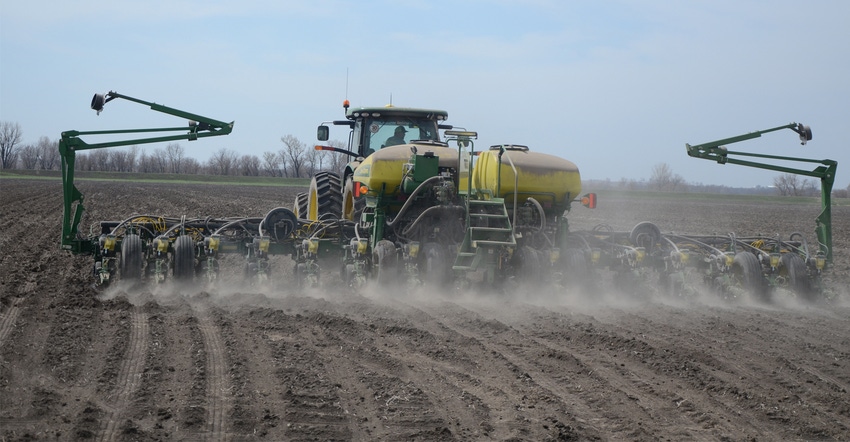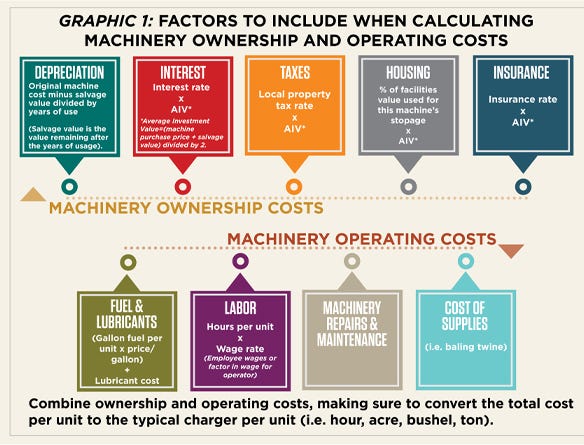November 25, 2019

By Glennis McClure
To supplement farm income and spread equipment costs over more acres, some next-generation farm operators are providing agricultural custom work or machine hire services in their area.
Just a few acres or hours of time may be involved. However, for some, providing custom services may be a substantial part of what they do. In some cases, this additional enterprise means added revenue as a part-time job, allowing a young farmer an opportunity to come back to the operation.
There are many issues and decisions to consider in planning and operating this type of add-on enterprise or side business. Let's look at it from the point of view of establishing a separate business entity when planning for an ag custom service business.
First steps
The first step is to address feasibility, which can be helpful as business decisions are made. Items to research include:
• How many potential customers are there nearby that could be served?
• What custom service(s) can be provided in a timely manner, which are done to the customer's specifications when conditions are right?
• Is there a competitive advantage in how this business operates and serves customers versus others providing similar services? In other words, what benefit(s) could be provided to customers that competitors do not offer?
• Are there resources to support this business or enterprise, such as financial (funding to cover expenses before revenue comes in); labor availability; knowledge of how to get the job done efficiently; proper, well-maintained, reliable equipment; and support from others, such as family and partners in the farming operation.
One of the main considerations in creating and sustaining a custom hire ag service enterprise is to understand how machinery and equipment costs — including repairs and replacements — will be handled. If the equipment used to provide custom hire services is owned jointly by a separate farm entity, or owned by parents, relatives or other business partners — and also is used for the regular farming operation — a business agreement should be prepared.
It's always best to have written agreements. The agreement could spell out lease arrangements for equipment, handling and payment of repair costs, machinery replacement, insurance and interest expenses, and other costs.
One option may be that the custom hire business owns the equipment used in the custom hire enterprise, and then charges the farm operation accordingly for use of the equipment or services rendered.
Pricing for profit
Pricing custom hire services for profit can be challenging. Several Midwestern universities make custom rate reports available, including a biennial custom rates survey report provided by University of Nebraska-Lincoln Extension. The next Nebraska Extension survey will be done in early 2020.
The custom rate report is a market rate report that provides "going rates" of custom services across eight districts in Nebraska. The report is widely used by those providing services and those paying for services. However, the information contained in this report should not be the only guide to custom service pricing.
The ownership cost of equipment that is used in the custom service enterprise and the operating costs associated with the various custom jobs must be calculated. Graphic 1 (below) provides the list of factors used in calculating machinery ownership and operating costs.

After ownership and operating costs are determined, a profit and risk margin figure needs to be added. The price for custom services also may factor in the travel distance from the home operation to the custom job, field conditions and size. After these calculations, consider the market rate for similar custom jobs in the area. If a competitive price can be determined that covers all economic costs and provides a profit, the service should be worth offering.
After determining how much custom work is feasible to take on, what to charge and other business planning decisions, marketing the custom services is a next step. Making personal contacts with potential customers can be productive. Working on relationship building with area farm managers and retired farmers can be a good place to start.
If they aren't interested in hiring custom operators, they may be able to suggest other potential customers. Word-of-mouth referrals will be key to gaining customers, both as a startup and ongoing business.
Posting flyers, handing out business cards, placing classified ads and using social media are ways to advertise. Adding the business name and logo on vehicles, trucks and equipment can serve as a mobile billboard and may generate some new customer possibilities.
There are many considerations that need to go into planning and operating an agricultural custom service business, similar to any business enterprise. Careful planning and attention to details is always wise. Visiting with an accountant and legal adviser should lead in the right direction regarding decisions about the creation of a separate business entity and if it is needed.
Written contracts on shared equipment use with family members or business partners and using customer contracts also are good business practices to consider.
McClure is a UNL Extension educator in agriculture economics.
Author's note: For those who are providing agriculture-related custom hire services, sign up to participate in the 2020 UNL Custom Rates Survey at agecon.unl.edu/custom-rate-participants.
You May Also Like




